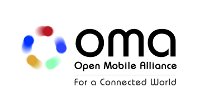Host
W3C gratefully acknowledges AppFusions for hosting this workshop.
Sponsor
If you're interested in being a sponsor, please contact J. Alan Bird at abird@w3.org or +1 617 253 7823. For additional information, please visit the Sponsorship program.
Important dates
8 July 2013:
Deadline for position papers
for possible presentation
(via email)
15th July 2013:
Program and position papers posted on the workshop website
31 July 2013:
Deadline for registration
(statement of interest required,
no participation fee)
Goal and Scope
The goal of this workshop is to bring together social business experts with social technology experts in a neutral and objective environment to discuss the use-cases that existing specifications don’t adequately address and understand where new standards are needed.
The goals of the next-generation of social business should be:
- Connecting individuals in productive, efficient ways as dynamic groups
- Expediting identification of expertise and sharing of knowledge
- Providing line-of-sight across traditional boundaries and better aligning actions to needs
- Speeding up organizational insight to anticipate and address evolving opportunities
- Encouraging a collaborative atmosphere
- To allow organizations to self-organize as a complex adaptive system
The workshop will discuss the similarities, gaps, and differences between the various use cases submitted and how they match to existing or new standards, and provide recommendations for their development at W3C or elsewhere. This roadmap for social standards will be in the final report for the workshop, as well as a possible draft Working Group charter(s).
The scope will be open, but with a focus on social business as championed by the W3C by the W3C Social Business Community Group. A social business is an organization that applies social networking tools to business roles, processes and outcomes. This enables people to collaborate through interconnecting business activities with a social content, spanning internal organizational boundaries, and extending to partners and customers. Social business also involves monitoring and analyzes social data to discover new insights - faster problem solving, improved customer relations, predicting market opportunities, better internal and external relations - that can drive business advantage. As social business is quickly expanding beyond social media campaigns and employee blogs, adopting patterns from the social web into business settings requires the flexibility realized via open standards.
It may be useful to look at previous work in social business and the social web. There has long been an interest in making the social web, ranging from status updates to federated identity, a "first-class" citizen of the Web. A number of innovative standards and specifications at a variety of standards bodies and independent organizations have led the creation of an "open stack" of technologies that enable federated social networking. These range from work on client-side APIs such as OpenSocial to server-side technologies such as PubSubHubbub, and a number of codebases implement this technologies successfully. A number of hard problems, such as how to integrate group-based functionality and access-control, remain unsolved. Also, these specifications are also fragmented and their benefits have yet to reach end-users.
The W3C held The Future of Social Networking workshop in 2009, which led to the W3C Social Web XG that published an overview report: A Standards-based, Open, and Privacy-aware Social Web. Pre-standards work was taken up in a number of W3C Community Groups and Federated Social Web events in 2010, 2011 (jointly hosted with W3C), and 2012. The major standards efforts are happening around OpenSocial at the OpenSocial Foundation and OAuth in the IETF. Based on the findings of a W3C Social Business Jam, a task force and the W3C Social Business Group created a draft map of the landscape. The W3C Social Business Community Group continues this work on the landscape and has published A CTO Guide to Social Business.




